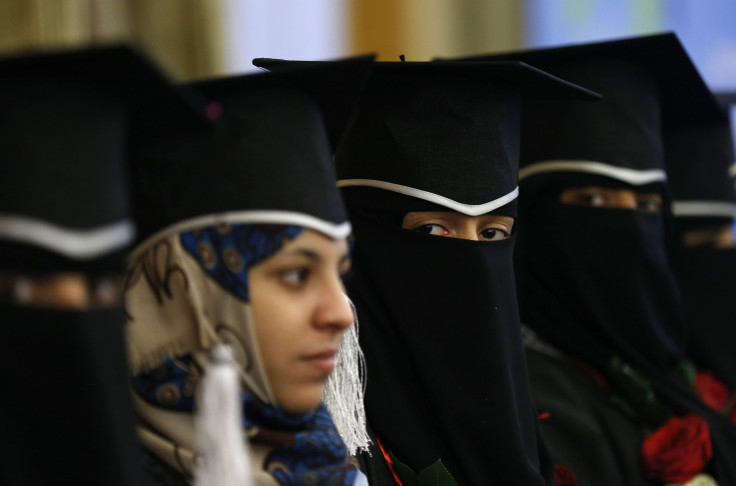Michigan Muslim Forced To Remove Hijab: First Amendment Violation Alleged By Woman Who Files Suit Against Sheriff's Department

A Muslim-American woman in Michigan has filed a federal lawsuit against the Oceana County Sheriff Department for allegedly violating her First Amendment rights when she was arrested earlier this month and forced to remove her hijab. Fatme Dakroub, of Dearborn Heights, said the arrest “was the worst experience of my life.”
Dakroub was vacationing with her children May 17, when she was pulled over in a rental car. The officer questioned her about a traffic ticket she had received years ago -- a ticket she claimed to have paid -- before arresting and booking her and forcing her to remove her hijab.
“It felt really insulting and humiliating,” Dakroub told reporters Thursday. “You feel so violated, and you can’t do anything. I was scared that if I opposed what they were asking me, then something bad might happen, like what we’ve seen on TV. They might do something and then say that I resisted.”
In addition to the arrest, officers contacted immigration officials. Though Dakroub was driving with a United Arab Emirates license, she is a U.S. citizen.
Three male officers were present during the booking when she was asked to remove the headscarf, said Dakroub, who then requested a female officer to assist her during the process, to no avail. She was led to a holding cell without the garment, where she said she was ridiculed by police.
“I don’t understand why they had to be so rude and mean,” Dakroub said. “I was being so polite with them and just trying to make them understand how uncomfortable I am.”
Muslim women can wear hijabs for a number of reasons, but the primary motivator tends to be religious or cultural in nature. Often the idea is to cover oneself to fulfill a commandment from God for modesty, but an outward display of Muslim identity can also lead women to wear the scarf. They’re not obligatory.
“It’s not necessary for the individual to be victimized in this fashion,” said Nabih Ayad, the executive director of the Arab-American Civil Rights League, an organization devoted to protecting Muslim civil rights and dispelling negative stereotypes of the community. “She was subjected to humiliation, isolation and harassment.”
The lawsuit was sent to the U.S. District Court in Western Michigan alleging the sheriff's department had violated Dakroub’s First Amendment rights. The Arab-American Civil Rights League is asking that police officers receive better training to handle sensitive, multicultural situations.
© Copyright IBTimes 2024. All rights reserved.












